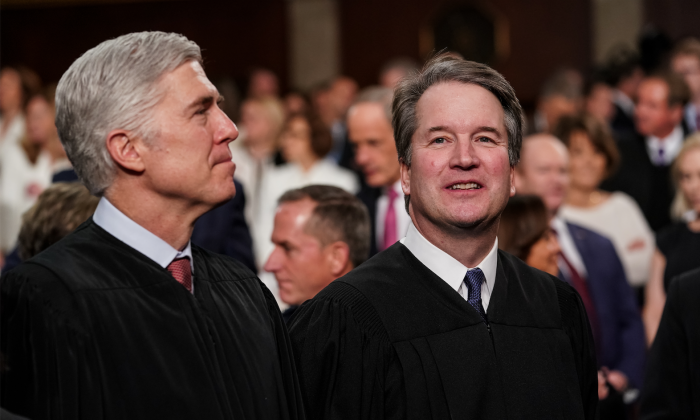Grants Pass, Oregon is facing a growing problem that it feels helpless to combat due to a lower court ruling.
Conservative justices on the Supreme Court seemed open to the argument from Grants Pass on April 22 that the Eighth Amendment should not prevent the city from prosecuting homeless individuals for sleeping outside.
The case of City of Grants Pass v. Johnson highlights the challenges many cities are facing with homelessness and homeless camping sites, which are increasing due to various factors such as rising rents and illegal immigration.
With over 580,000 people experiencing homelessness in 2022, according to the U.S. Department of Housing and Urban Development, Grants Pass is looking to lift a lower court ruling that prevents it from enforcing its public camping ordinance.
During the hearing, conservative justices expressed concerns about using an Eighth Amendment lawsuit to address the issue of homelessness, suggesting that it may not be the most effective approach.
The case stems from a ruling by the U.S. Court of Appeals for the 9th Circuit, which held that Grants Pass was constitutionally prohibited from penalizing individuals for camping on public lands under the Eighth Amendment’s guarantee against cruel and unusual punishment.
The city argues that the lower court misinterpreted the law and seeks to reverse the ruling to address the homelessness issue in Grants Pass.
Overall, the case raises important questions about the intersection of homelessness, public policy, and constitutional rights, and how cities like Grants Pass are navigating these complex issues.
Justice Neil Gorsuch raised the question of whether cities should be able to punish people for sleeping outside, suggesting that this could lead to difficulties in determining what other activities could be considered punishable. He posed the scenario of a lack of public bathroom facilities and questioned whether individuals have a constitutional right to defecate and urinate outside. He also questioned whether cooking outdoors, which he described as a human necessity, could be considered a right under the Eighth Amendment.
Deputy U.S. Solicitor General Edwin Kneedler’s office had argued in a previous brief that ordinances prohibiting sleeping on public property could be unlawful if they prevent individuals without shelter from residing in the jurisdiction.
Justice Brett Kavanaugh emphasized the importance of considering existing state and local laws before assessing the constitutionality of a policy, in order to avoid excessive federal intervention in homeless policy. He suggested that homeless individuals facing charges of illegal camping could raise a “necessity defense” by arguing that they had no choice but to violate the law.
The Supreme Court is set to make a decision on City of Grants Pass v. Johnson by the end of June.





